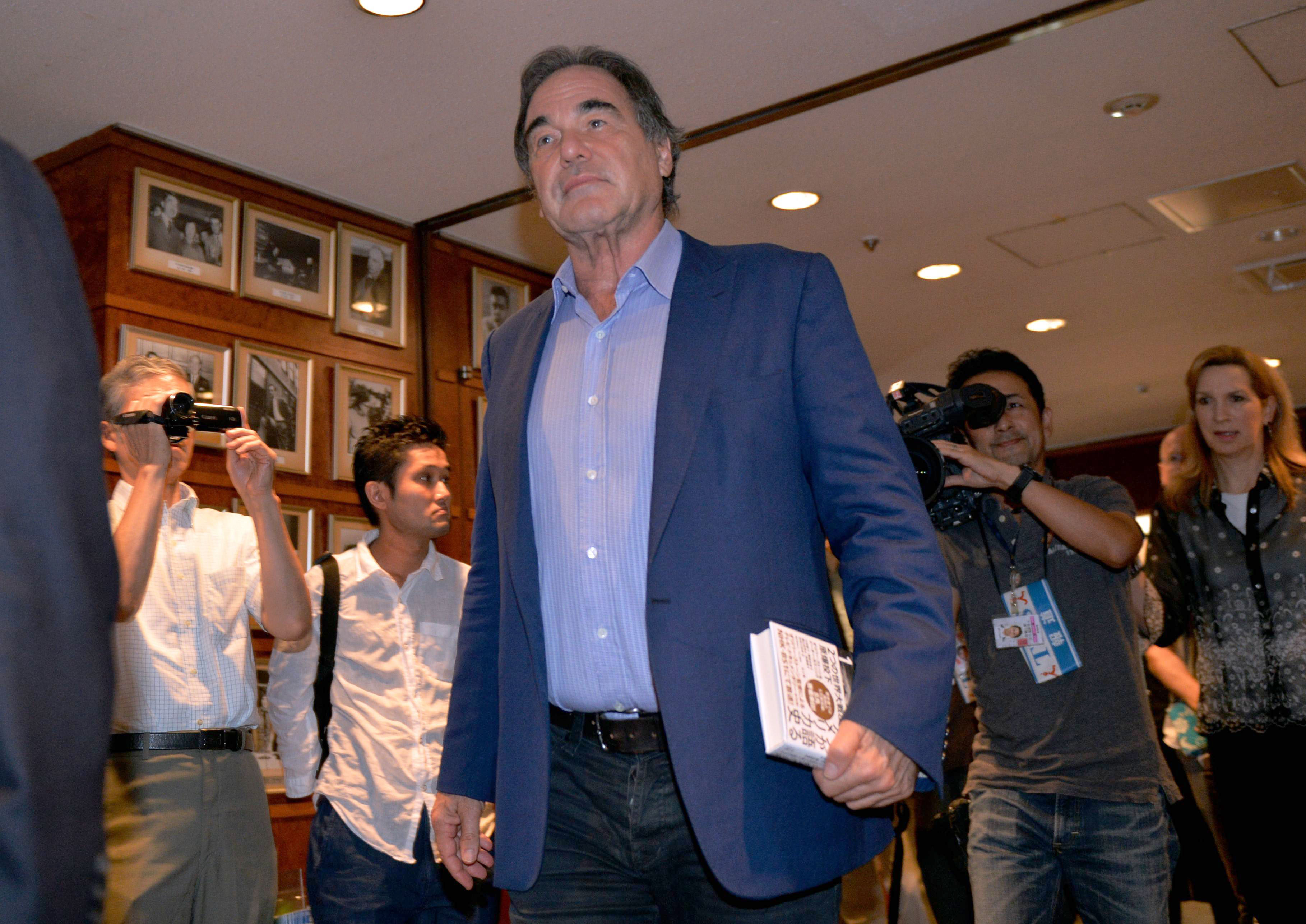It's August, when the Japanese media's attention turns to peace, or, at least, the absence of war. The anniversaries of the atomic bombings and subsequent surrender occasion print and broadcast discussions of what Japan learned from its bloody mid-century military campaign. For most people the fact that the country has enjoyed stability and prosperity since then is proof that lessons were learned.
But this year reminiscence has taken on greater meaning with the resurgence of the Liberal Democratic Party and its drive to revise Article 9, which prevents Japan from remilitarizing. By coincidence, the press has been covering the visit of filmmaker Oliver Stone and American University historian Peter Kuznick, whose 10-part documentary "The Untold History of the United States" was shown on NHK earlier this year.
Though ostensibly in Japan to promote the series, Stone and Kuznick have been more than willing to comment on Japan's position vis-a-vis American military power. At the pair's press conference at the Foreign Correspondents' Club last week, Stone was vehement in his condemnation of U.S. foreign policy since World War II. Japanese reporters have fixated on his assertion that the atomic bombings were carried out for racist and strategic reasons, and not to save lives, which is the accepted American narrative, but Stone's main message is that Japan should not join the U.S. in what he characterized as the latter's mission to make the world safe for American wealth.

















With your current subscription plan you can comment on stories. However, before writing your first comment, please create a display name in the Profile section of your subscriber account page.